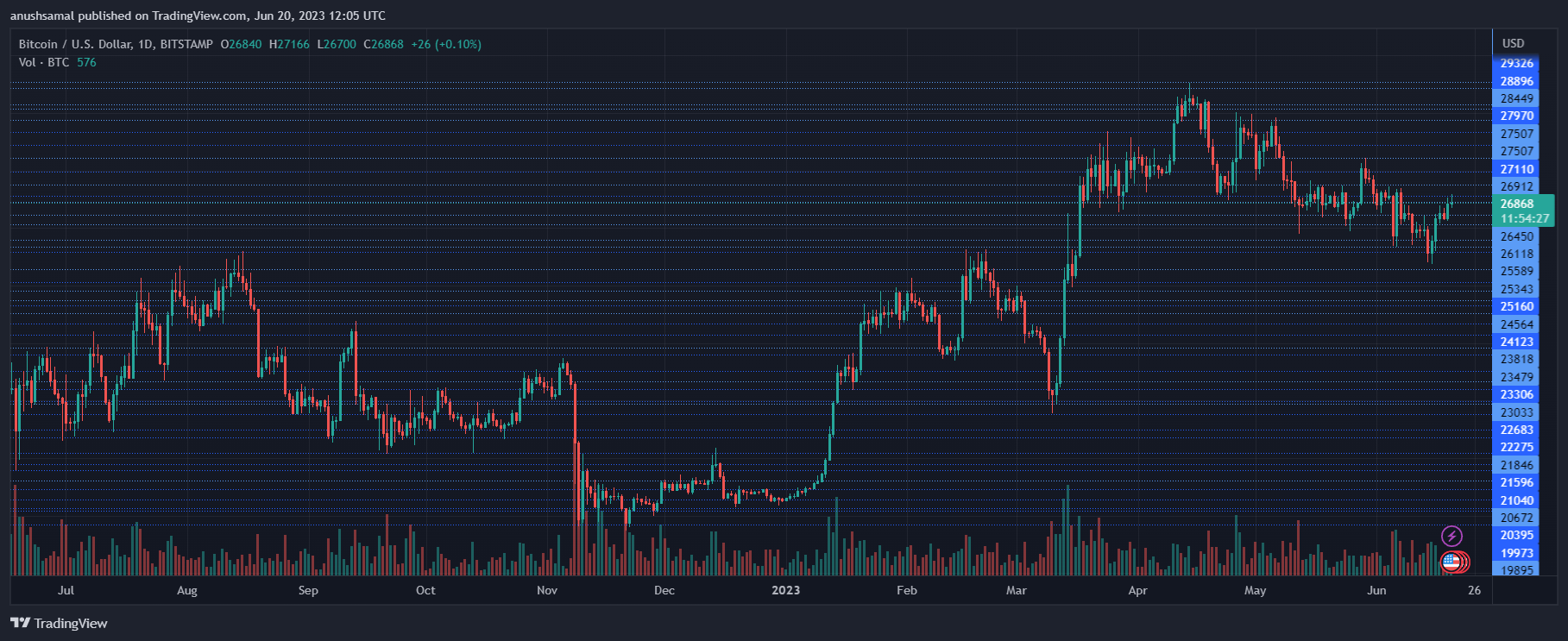MasterCard Files New Trademark Application
MasterCard, a well-known global payment processor, has recently submitted a trademark application that extends its coverage to cryptocurrency and blockchain tools. This strategic move signifies MasterCard’s continued foray into the realm of cryptocurrency.
The recent trademark application sent to the United States Patent & Trademark Office reflects the company’s aspirations to delve into and potentially participate in the thriving cryptocurrency market. The application encompasses a range of services related to cryptocurrencies and blockchain technology.
According to trademark attorney Michael Kondoudis, the payment processor aims to establish connections between virtual asset service providers for facilitating seamless crypto transactions. The application was submitted on June 12 to the US Patent and Trademark Office (USPTO).
Related Reading: Cardano Introduces Latest Node Version On Mainnet
This application comprises three international classes (IC), which classify and categorize the goods and services associated with the filing. These international classes provide distinct identification categories for the goods and services covered by the trademark application, further clarifying the scope of MasterCard’s intended offerings in the cryptocurrency and blockchain domain.
MasterCard Initiates Reconnection With The Crypto Industry
The demand for transparent, efficient, and secure financial solutions continues to rise, established companies are venturing into this emerging industry. They are embracing the latest technologies, and the new trademark demonstrates its commitment to providing customers with cutting-edge services.
This move positions MasterCard as a potential player in sectors like DeFi, smart contracts, and digital currencies. In addition to its foray into the digital asset world, MasterCard aims to introduce download (Application Programming Interface) API software that facilitates the verification of blockchain interactions during trading activities. However, the trademark application does not provide specific details regarding the immediate launch of products and services.
#Mastercard is continuing its move into #crypto!
The payment processor has filed a trademark application claiming plans for
▶️ Software for crypto + blockchain transactions
▶️ Interconnecting virtual asset service providers for crypto transactions#Web3 #DeFi #Cryptocurrency pic.twitter.com/Pz1m5gau10— Mike Kondoudis (@KondoudisLaw) June 19, 2023
The recent trademark filing mentioned above is part of MasterCard’s ongoing efforts to re-engage with the cryptocurrency sector. MasterCard, along with Visa, had previously paused its crypto initiatives due to challenging market conditions and regulatory uncertainties.
Expanding Collaborations With Several Crypto Platforms
In early March, it was reported that Bybit, a prominent crypto exchange, announced the launch of a debit card powered by the MasterCard network. The card, issued by Moorwand, enables users to easily transition between the crypto and fiat worlds, allowing for purchases and cash withdrawals from ATMs.
MasterCard further expanded its crypto payment card program in late April, partnering with major crypto trading networks like Binance, Gemini, and Nexo. This collaboration enables these companies to offer crypto payment cards in multiple countries, highlighting the commitment of the payment processing platform to support crypto transactions.
Over the years, MasterCard has demonstrated a willingness to embrace cryptocurrencies through various partnerships. Notably, it acquired Ciphertrace, a crypto analytics company, in late 2021. Additionally, MasterCard teamed up with exchange Gemini and financial firm Uphold to create credit cards that facilitate crypto transactions.
In 2022, the platform submitted fifteen trademark applications, including its brand name, logo, and slogan. These applications signify MasterCard’s plans to explore NFT-backed media, and payment processing in the metaverse, e-commerce, and emerging areas.

Featured Image From UnSplash, Chart From TradingView.com
